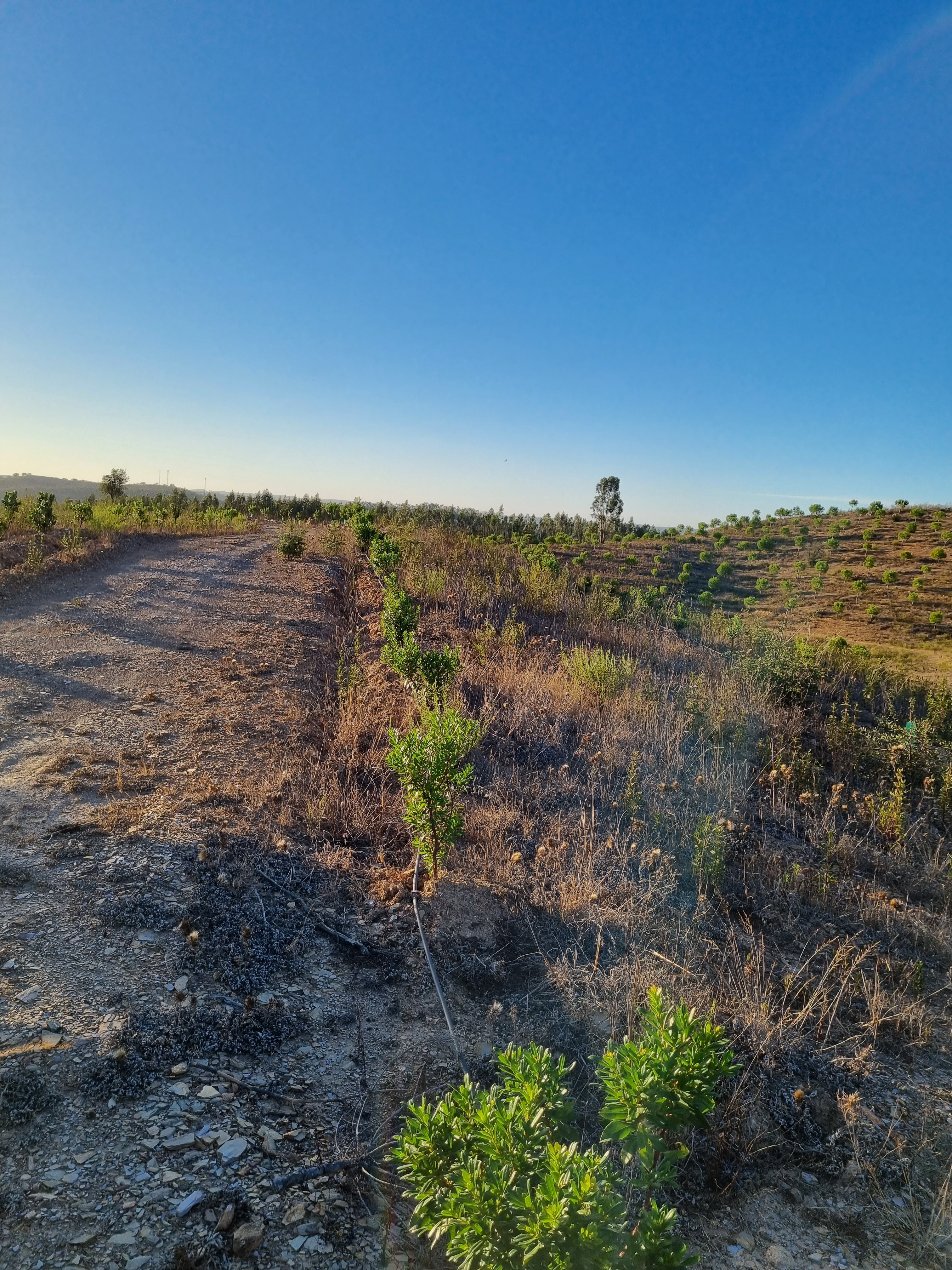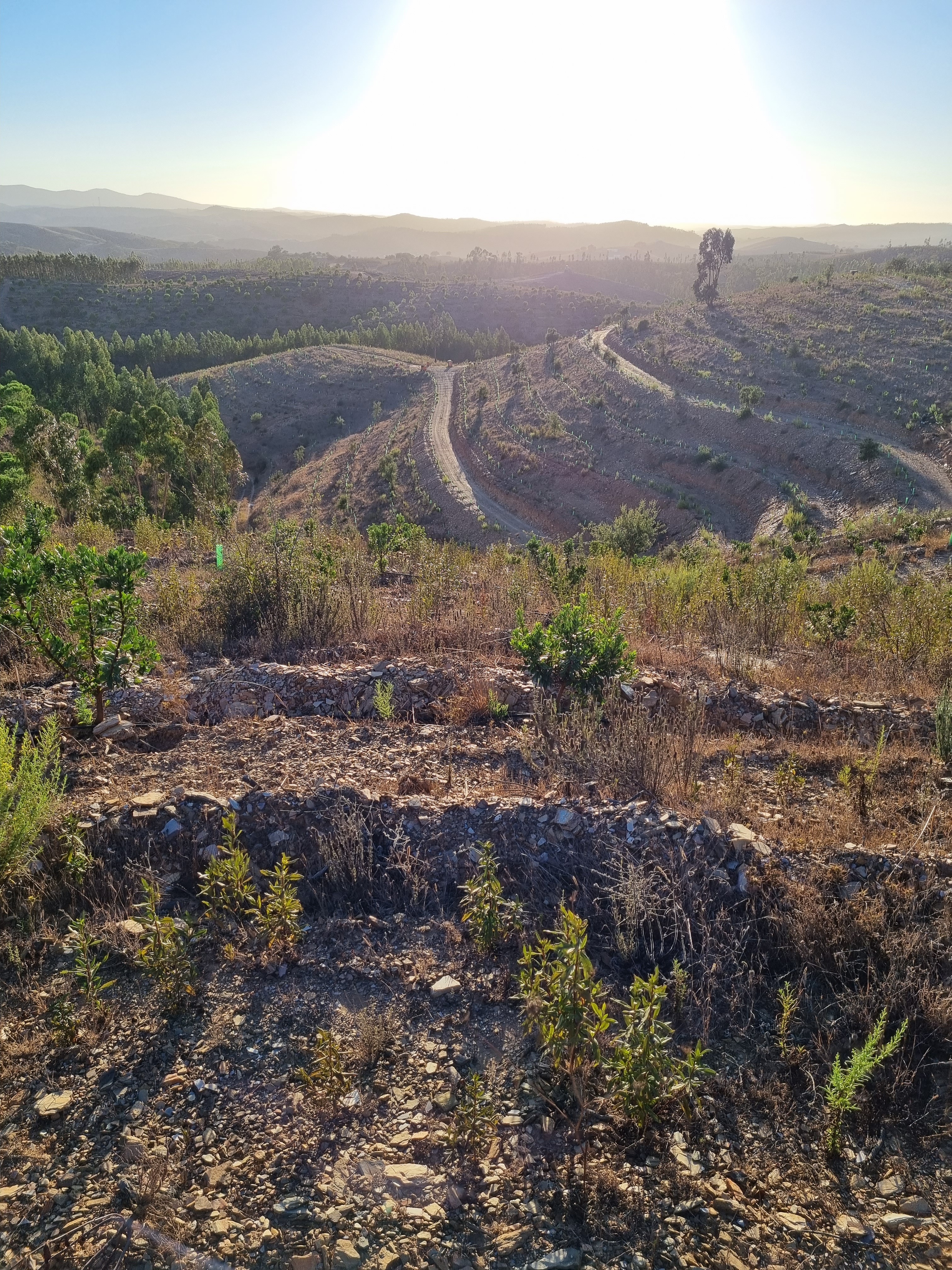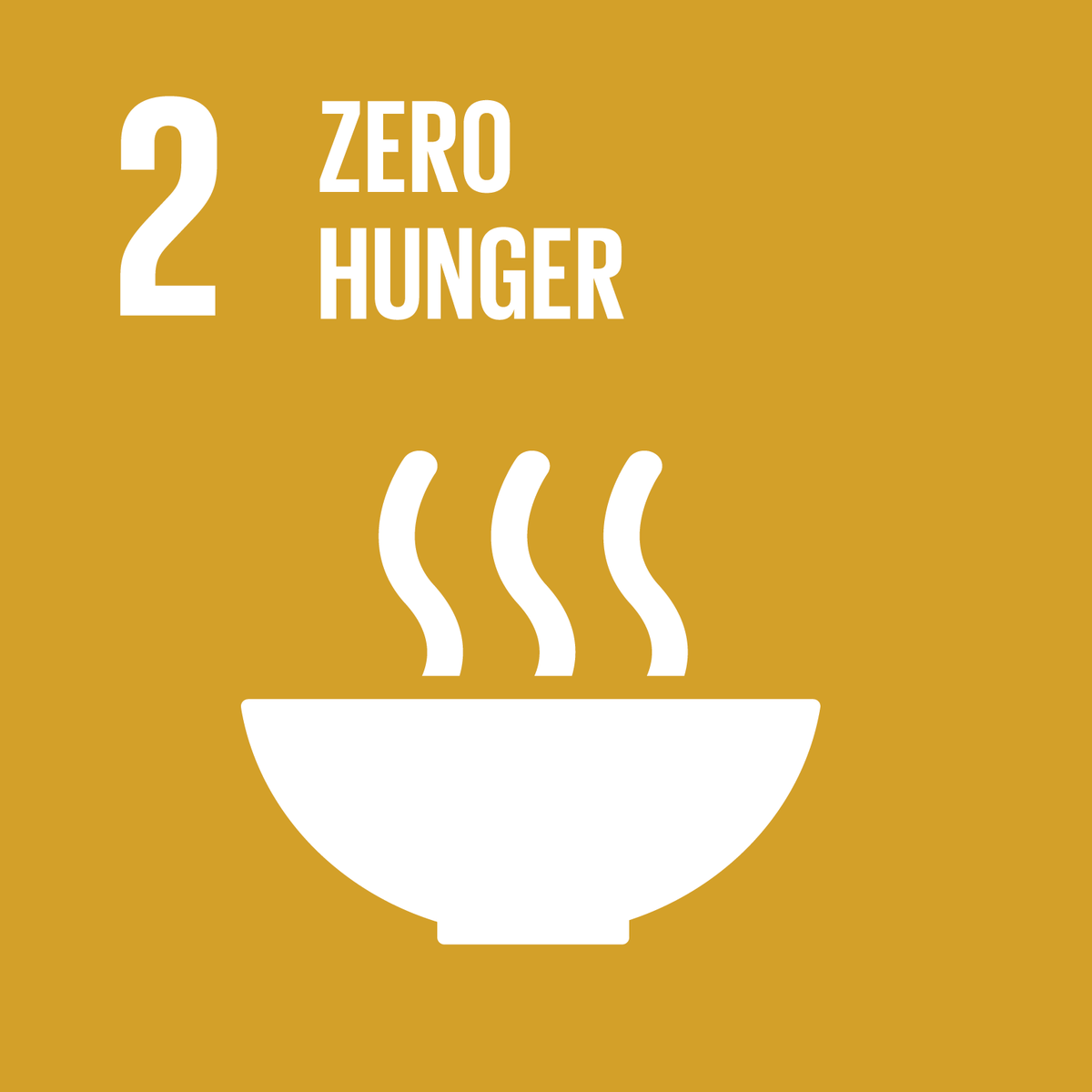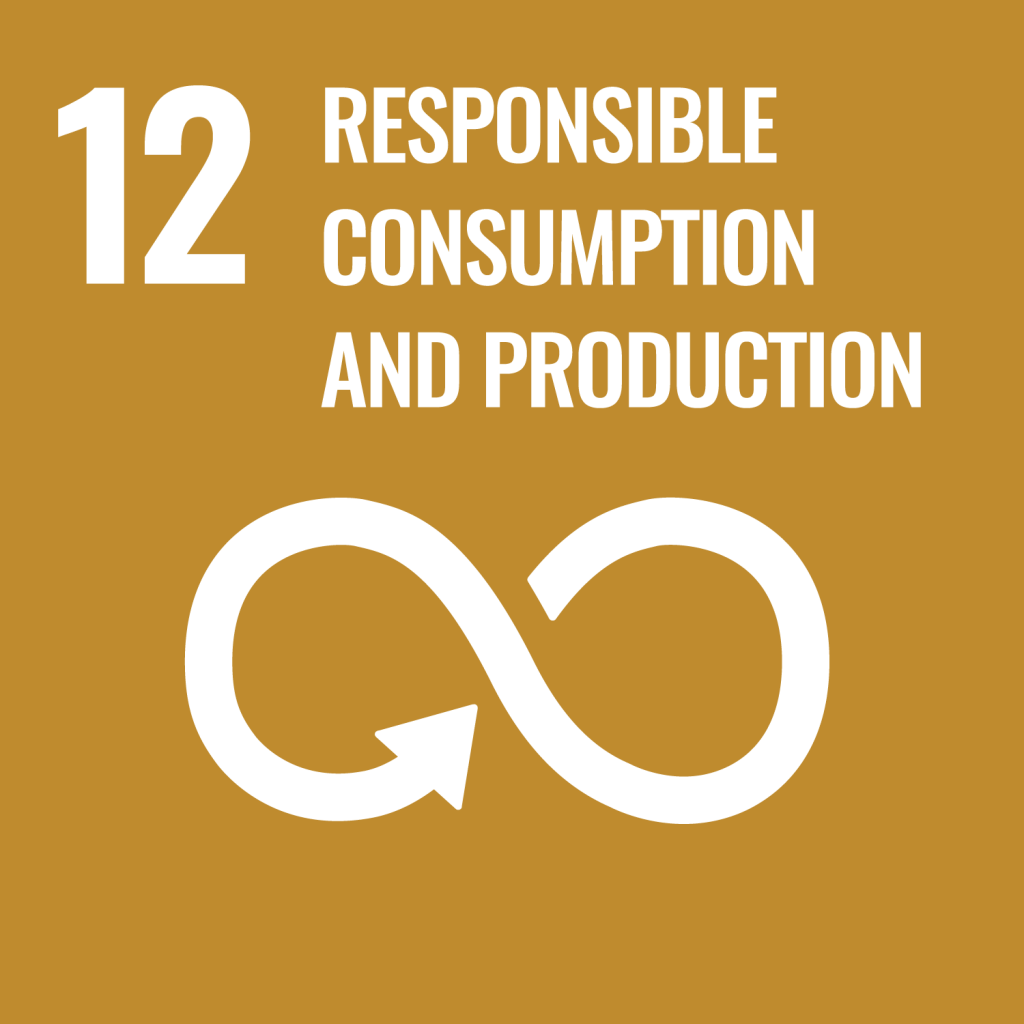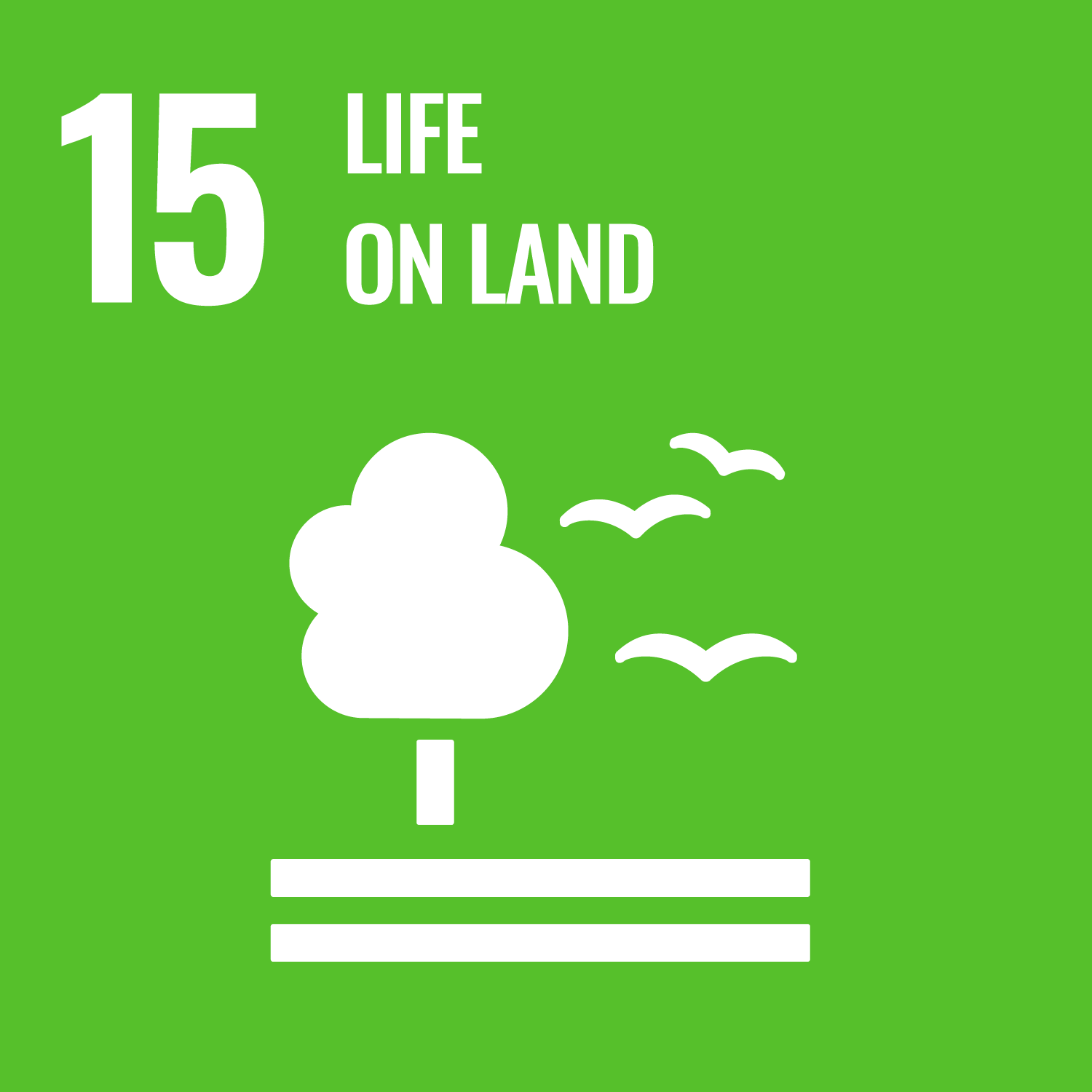Santa Clara-a-Velha: Food Forest
About the project
Continuing Life Terra's ecological restoration efforts in the Alentejo region, a food forest was planted in a private owned land in Santa Clara a Velha. This former eucalyptus monoculture suffered from continuous droughts, soil exhaustion and the loss of its productivity after years of intense logging. This 10.5 hectare area was cleant and the biomass was incorporated into the soil to retain organic carbon, while the plantation of 9,650 trees from three different species (Arbutus unedo, Pinus pinea and Quercus suber) began. As a contingency measure, irrigation was installed to enhance survival rates. Between the planting lines, natural regeneration began and after only a few years, the amount of pollinators and birds present in the plot raised dramatically.
You can contribute to this project by adopting trees:
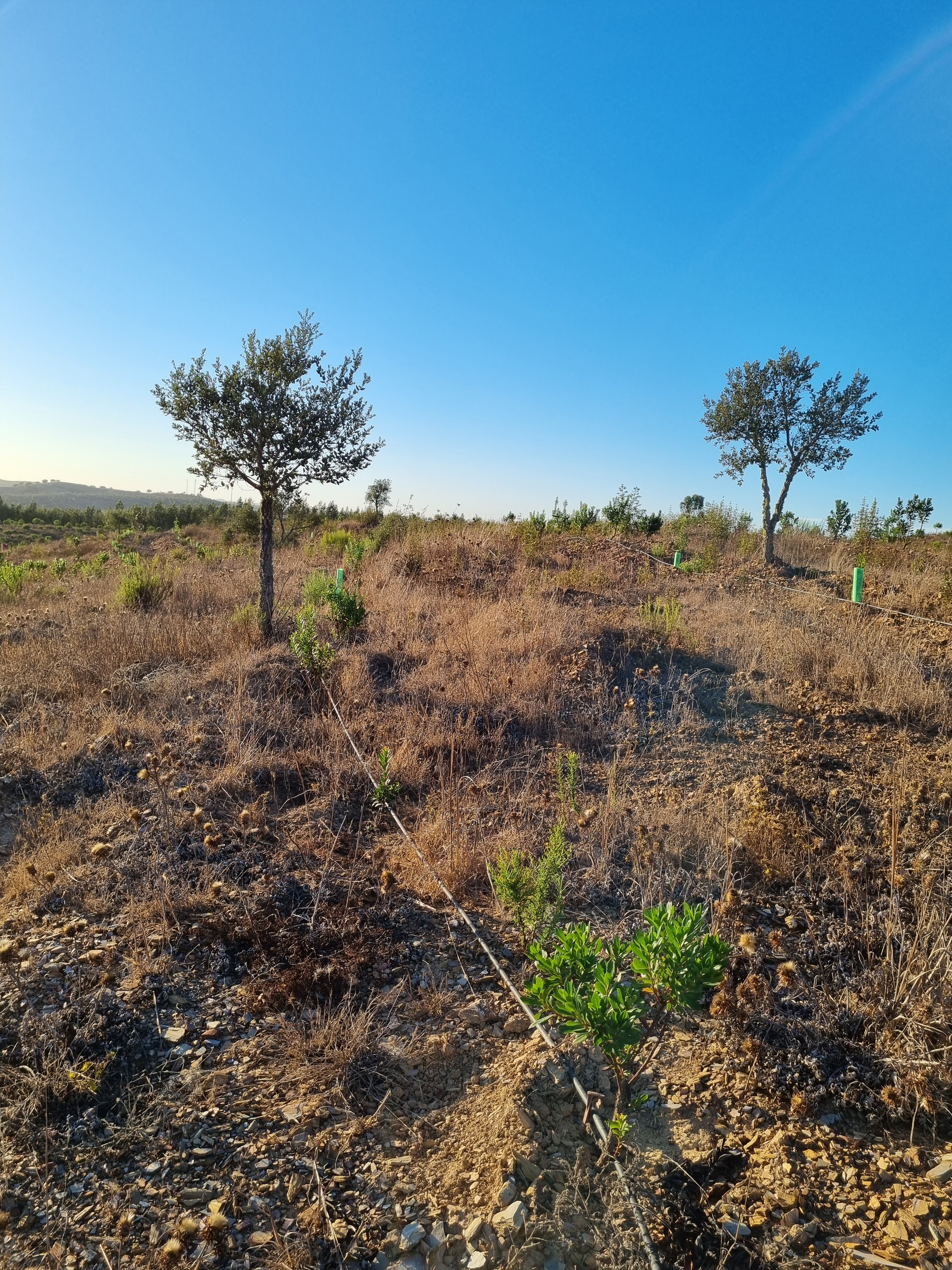
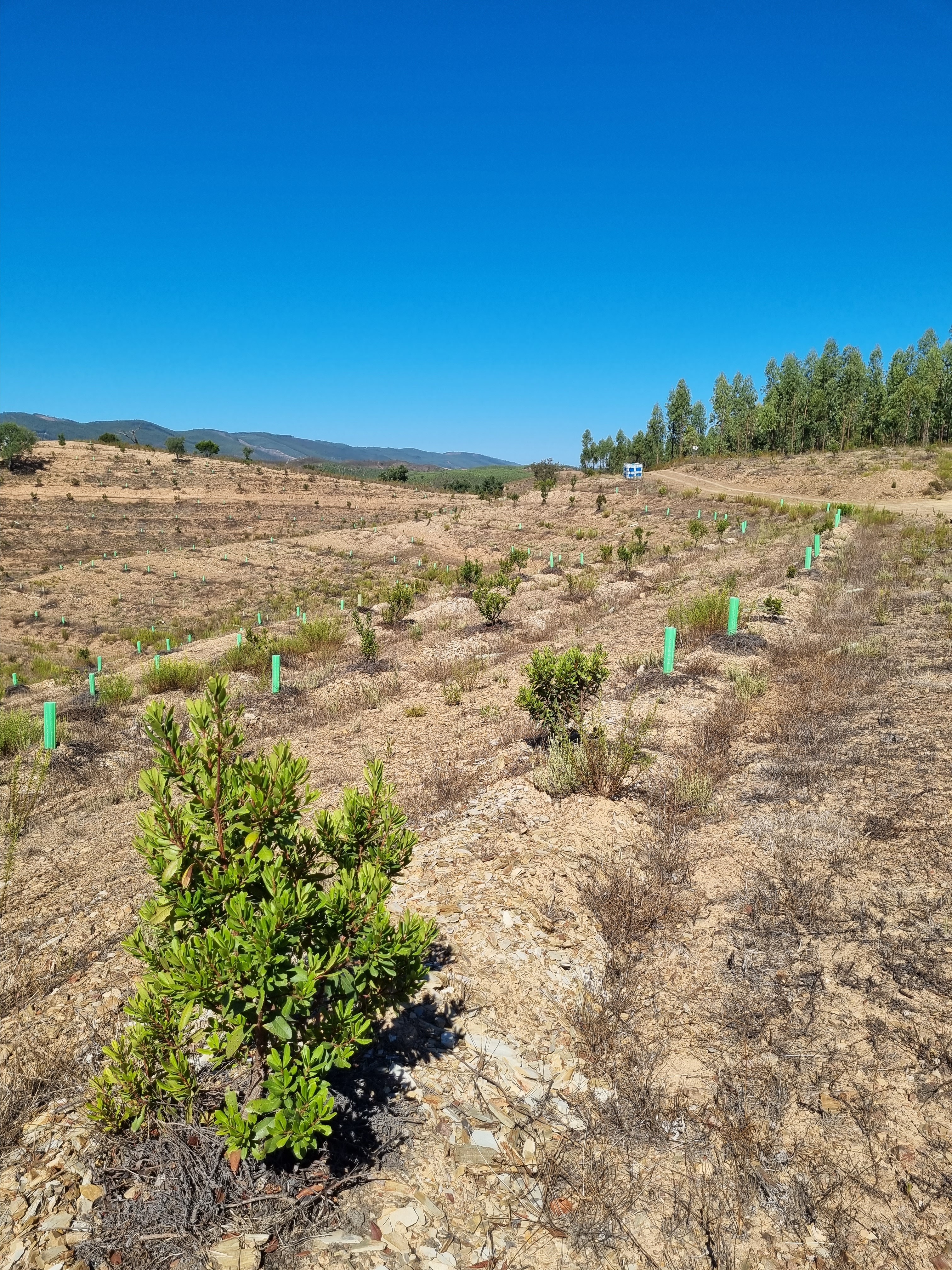
Objective
Transform an exhausted eucalyptus monoculture into a thriving and biodiverse food forest with native and productive species.
Impact
This planting initiative contributes significantly to the ecological restoration of exhausted landscapes in Southern Portugal. By improving soil quality, stabilizing terrain, and enhancing biodiversity, it helps transform degraded land into a sustainable ecosystem. The project supports climate resilience, provides new habitats for local species, and provides a sustainable source of income to the landowner through the production of fruits and pines through sustainable management. Monitoring indicates healthy tree growth and successful establishment of the plantations.
This project contributes to the following SDGs:
Estimated CO2 sequestration
This 10.5 hectare project is estimated to absorb 61-62 ton CO2eq/hectare. In total, an estimate of 615 tons CO2 equivalent will be absorbed in a 40-year period.
